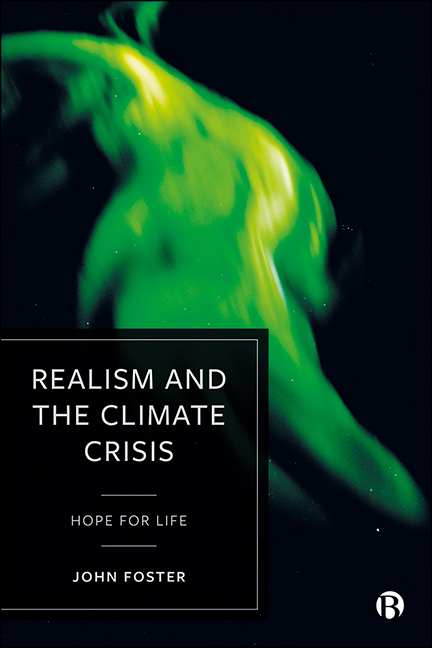Book contents
- Frontmatter
- Dedication
- Contents
- A Note on Notes
- Acknowledgements
- Introduction: Hope, Realism and the Climate Crisis
- 1 The Demands of Realism
- 2 Transformation?
- 3 Creating Possibility
- 4 Responsibility Beyond Morality
- 5 The Bounds of Utopia
- 6 Climate Crisis as Tragedy
- 7 On the Way to Revolution
- 8 The New Revolutionary Dynamic
- 9 The Vanguard of Hope
- Notes
- References
- Index
2 - Transformation?
Published online by Cambridge University Press: 15 September 2022
- Frontmatter
- Dedication
- Contents
- A Note on Notes
- Acknowledgements
- Introduction: Hope, Realism and the Climate Crisis
- 1 The Demands of Realism
- 2 Transformation?
- 3 Creating Possibility
- 4 Responsibility Beyond Morality
- 5 The Bounds of Utopia
- 6 Climate Crisis as Tragedy
- 7 On the Way to Revolution
- 8 The New Revolutionary Dynamic
- 9 The Vanguard of Hope
- Notes
- References
- Index
Summary
The realism of empirical plausibility represents, as I said in the Introduction, our taking the parameters for what is count as thinking realistically from a certain underlying conception of, or set of unquestioned assumptions about, what is fundamentally real. Central to this at least tacitly operative metaphysic is the belief that in the nature of reality, true general laws instantiated by what has happened are determinative of what can happen, and attention to them is always strongly predictive of what will happen. This is so because the basically real is thought of as a world of objects and forces located in space-time, a world which holds together wholly impersonally and not just as seen or grasped from some unifying perspective, and which therefore must be organized exclusively and exhaustively by causal connections. For impersonally and objectively – that is, removed from any notion of an informing intention or shaping will – the only possible reason for anything's happening is that something else caused it to happen. These assumptions, coupled culturally with growing technical capacity and declining religious belief, provided the underpinning for the scientific world view as it has been articulated and developed over the past three centuries. They are also (and of course, relatedly) the grounding for our deeply held common-sense conviction that you can't ultimately buck the odds – that it is unrealistic (it ignores how things really work) to expect more from the future than you are licensed to expect by the pattern of probabilities derived from scrupulously careful observation of the past. From this disillusioning common sense comes the depressing picture which we were tracing in the first chapter of just how intractable our climate plight must now appear.
But if life will not let us abandon hope for a genuinely sustainable human future, if realism is a condition of all hope, and if conceiving the realistic in terms of what is empirically plausible now leaves us no room for hope of that order, it follows that life must insist on our conceiving the realistic differently – which means that it must insist on something to be underpinned by a different metaphysic of reality.
- Type
- Chapter
- Information
- Realism and the Climate CrisisHope for Life, pp. 31 - 46Publisher: Bristol University PressPrint publication year: 2022



